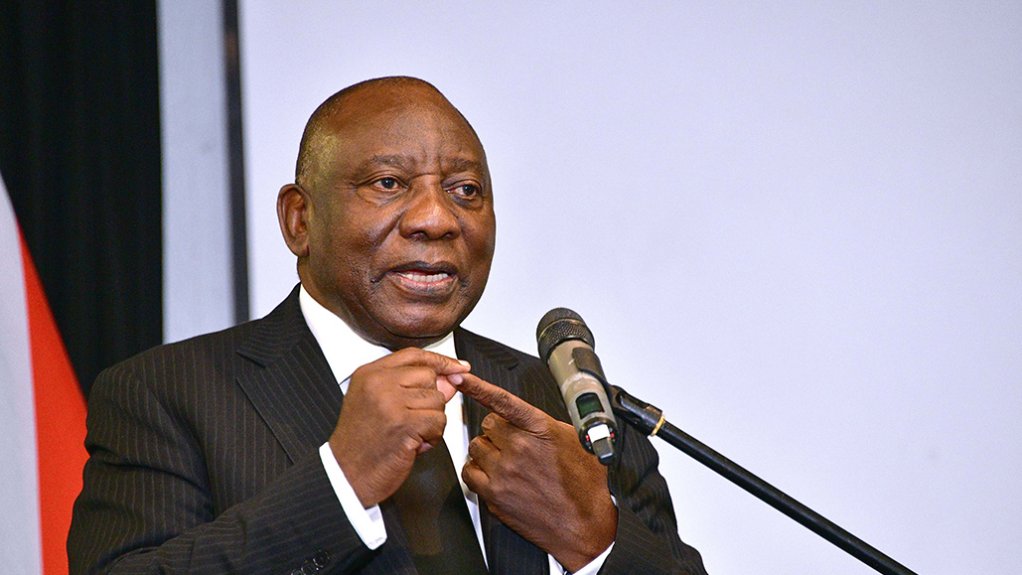The Zulu royal throne is on shaky grounds after the North Gauteng High Court in Pretoria found that President Cyril Ramaphosa failed to follow due process to recognise Misuzulu KaZwelithini as King.
On Monday, Judge Norman Davis delivered a much-awaited judgment in the case that was brought to court by Misuzulu's brother, Prince Simakade Jackson Zulu and the late King Zwelithini's half-brother, Mbonisi Zulu, as they challenged the process followed to identify and appoint Misuzulu as the heir to the throne.
Davis stressed that the judgment is not to determine who is the rightful king of the AmaZulu.
Davis said:
The applicants brought two review applications and the court was required to determine those.The first was whether the incumbent king, Misuzulu kaZwelithini Zulu, has been appointed as king in terms of Zulu custom and the second was whether the president had correctly recognised the present king in terms of the act.
In his judgment, Davis criticised Ramaphosa for failing to comply with the Traditional and Khoisan Act, which deals with transitional arrangements.
He laid out events leading up to Ramaphosa's decision and demonstrated how Ramaphosa failed to consider some of the objections and concerns raised by some of the royal family members and went ahead to recognise Misuzulu as the king.
Davis demonstrated how Ramaphosa failed to comply with the Leadership Act, which provides that where there is evidence or an allegation that the identification of a person as queen or king was not made in terms of customary laws and customs, the president must launch a probe to be conducted by an investigative committee, which will give guidance on whether a new election should be held.
The act also provides that if the investigative committee's findings indicate that the person's identification or election was not made in terms of customary laws and customs, the president should forward the report to the royal house for its comments.
Davis chronicled how Ramaphosa ignored the objections and concerns of members of the royal family.
The judge pointed out that the late Princess Thembi had raised disputes regarding the Zulu monarchy and, in particular, about proceedings at a meeting held on 14 May 2021.
"Objections had been raised at that meeting against how the late Prince Mangosuthu Buthelezi had conducted the meeting and how, for example, Prince Thokozani had been silenced and removed from the meeting.
"The president denied that he had received this document due to an error in his email address noted thereon, but he acknowledged having received Princess Thembi's letter dated 3 June 2021, wherein reference was made to this document as an annexure.
"[T]he president noted from Princess Thembi's letter of 3 June that she contended that a preceding meeting of 7 May 2021 did not amount to a meeting of the Zulu royal family and that a meeting of 14 May 2021 was called under false pretences and that its agenda did not indicate that it was named for purposes of identifying a successor to the throne.
"The president further conceded in his affidavit that Princess Thembi contended that King Misuzulu cannot be recognised, appointed and coronated in terms of the Constitution, customary law and national and provincial legislation," reads the judgment.
Davis noted that in his answering affidavits, Ramaphosa admitted to being aware of conflicts in the royal house regarding who should be the successor to the throne.
However, he said there was insufficient evidence before him that could have persuaded him to launch an investigation.
Davis was not convinced by Ramaphosa's argument and said the act provides that for as long as there is an element of a dispute over the lawfulness of the election of a person, the president has the prerogative to launch an investigation.
"There can also be no doubt that the threshold of 'allegations' regarding the lawfulness of the election process has been met.
"The president, therefore, erred in law in performing an evaluative function regarding what he deemed to be the evidence.
"The Leadership Act clearly contemplates that an investigative committee is a statutory body created to perform such an evaluative function," reads the judgment.
The Zulu monarchy is the pound seat, with a R67-million annual budget received from the provincial coffers for the general upkeep of the Zulu royal household, a kingly R1.2-million salary, control of vast swathes of Ngonyama Trust land and ruling over a 15-million strong Zulu nation.
Cultural expert Professor Musa Xulu previously told News24 that what was at the heart of the entire royal fight was that people who decided on King Misuzulu being the rightful heir did not do a more thorough job to ensure there were no loopholes.
"The loopholes resulted from not doing a lot of spade work. Even the president can say what he said but [he] could have searched more to see that the conflict is complete before he signs for the one [king]," Xulu added.
Another cultural expert, Dr Gugu Mazibuko, told News24 previously that the entire court case was depressing and causing anxiety to the Zulu nation.
She said the case should never have made it to court and should have been handled internally by the royal family.
"At the moment, [the] AmaZulu are shaking; they are in pain because nothing is taking place. Everyone is focusing on this case. This will cause divisions, but at some point, the dust will settle, and the nation will move forward," Mazibuko said.
EMAIL THIS ARTICLE SAVE THIS ARTICLE
To subscribe email subscriptions@creamermedia.co.za or click here
To advertise email advertising@creamermedia.co.za or click here











